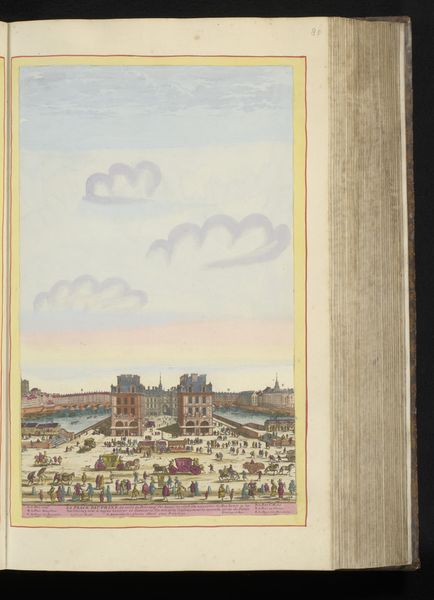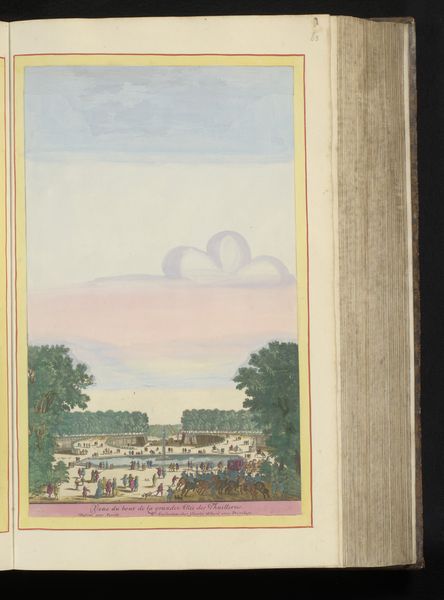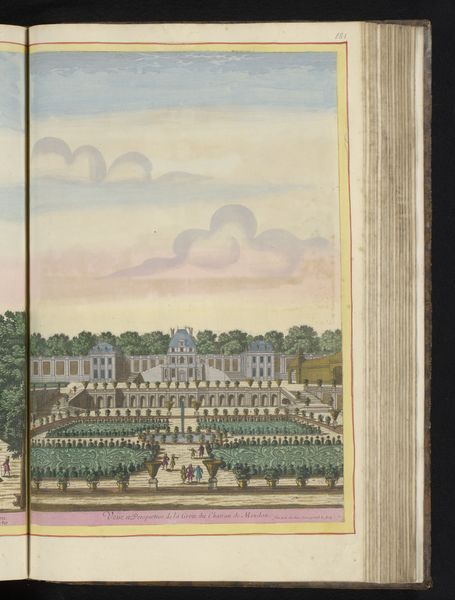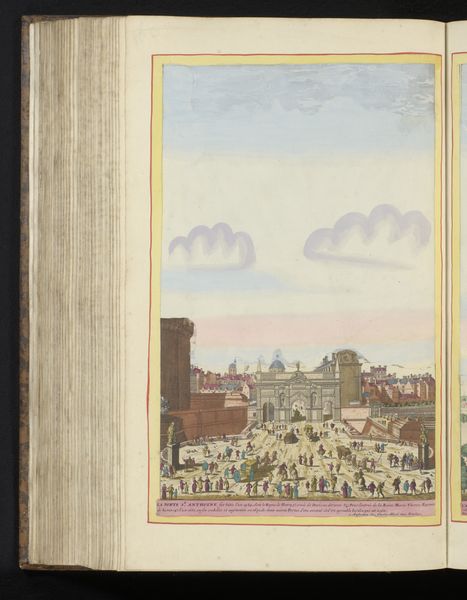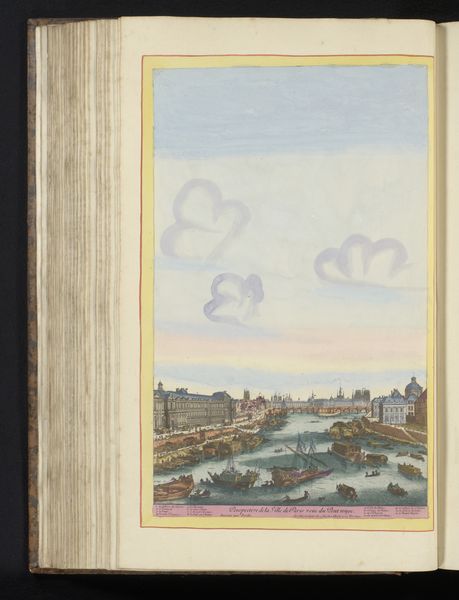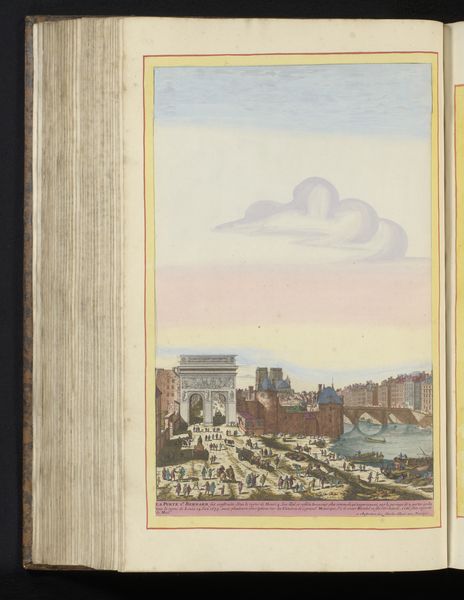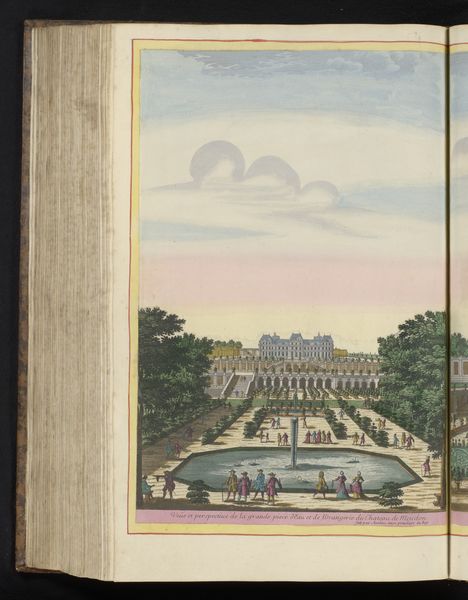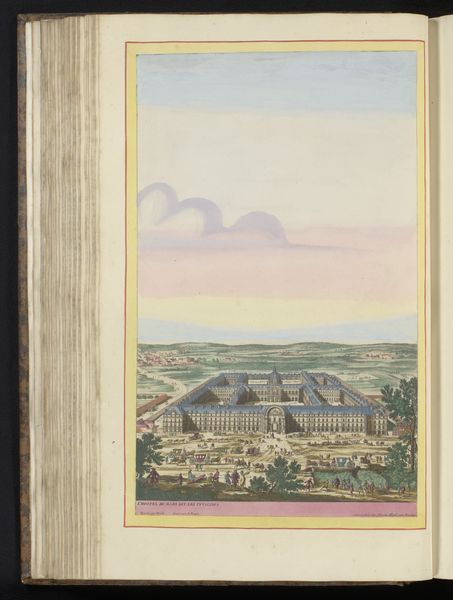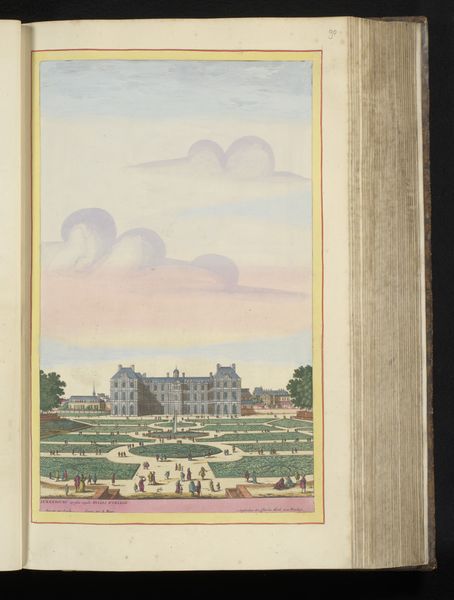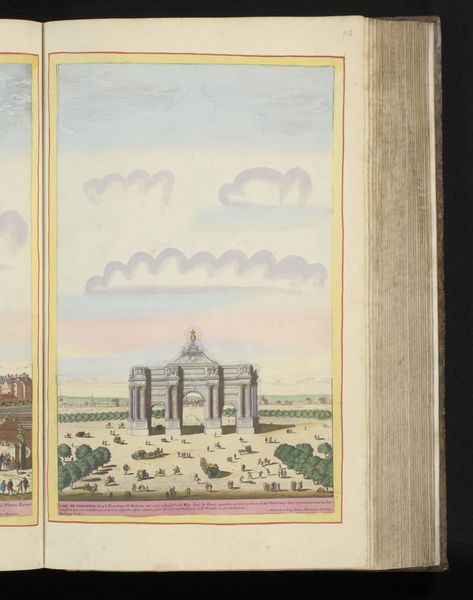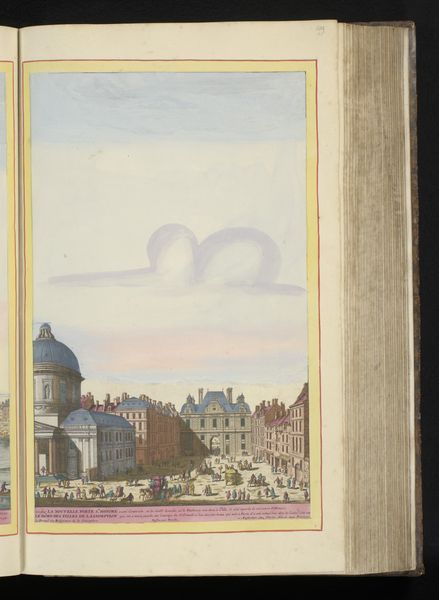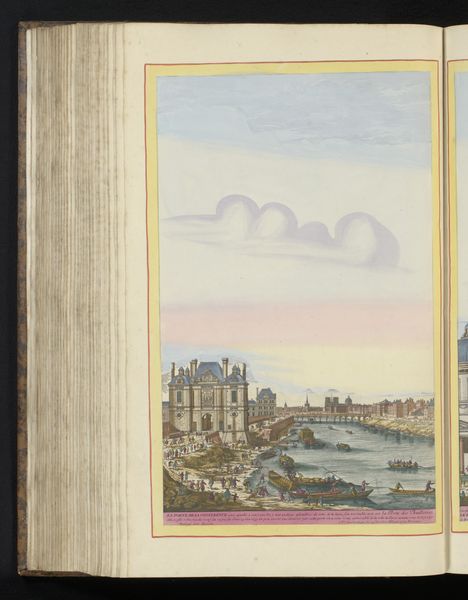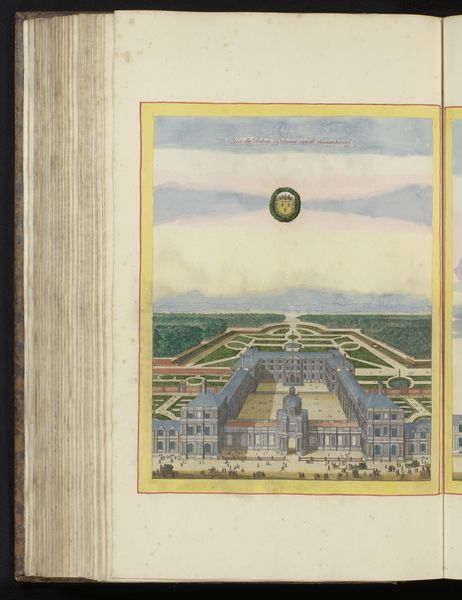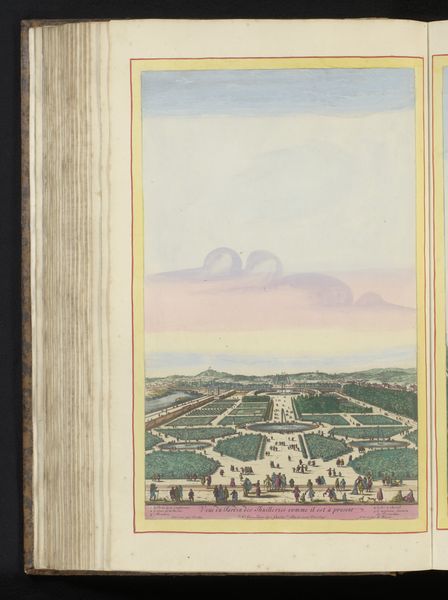
watercolor
#
aged paper
#
toned paper
#
homemade paper
#
paper non-digital material
#
baroque
#
paperlike
#
sketch book
#
landscape
#
personal sketchbook
#
watercolor
#
journal
#
cityscape
#
genre-painting
#
sketchbook art
#
watercolor
Dimensions: height 439 mm, width 268 mm, height 535 mm, width 319 mm
Copyright: Rijks Museum: Open Domain
Editor: So this is "Gezicht op de Place Royal te Parijs," or View of the Place Royal in Paris, made between 1685 and 1695 by Aldert Meyer. It’s a watercolor from a sketchbook. I’m struck by the formality, and how meticulously the people and carriages are depicted in the square. What can you tell me about it? Curator: It's interesting that you noticed the formality. The Place Royal, now Place des Vosges, was envisioned as a stage for royal power. Aldert Meyer's watercolor offers a glimpse into the daily performances of social status within that space. Consider the architecture: identical facades intended to project order and control, reflecting Louis XIV’s absolutist reign. The even distribution of figures – does that suggest anything to you about Meyer’s perspective? Editor: Hmm, it makes me wonder if this uniformity was actually imposed or just an artistic choice by Meyer. Were artists at the time expected to portray an idealized view? Curator: Indeed! Royal patronage significantly influenced artistic production. Images of Paris, especially its public spaces, were often carefully curated to enhance the monarchy's image. Meyer, being Dutch, perhaps presents a view slightly removed from the immediate pressures of the French court. But we must acknowledge that the art market itself also had certain expectations for topographical views like this. Who was consuming these images and what did they want to see? That’s crucial. Editor: So, understanding who the patrons and the intended audience were would reveal a lot about the social dynamics that shaped this piece and others of that era. That's really insightful. Curator: Exactly. Considering those aspects opens a window onto the politics embedded in even seemingly simple cityscapes like this one. It reveals that art, far from being separate from political ideas, is intertwined with society.
Comments
No comments
Be the first to comment and join the conversation on the ultimate creative platform.
